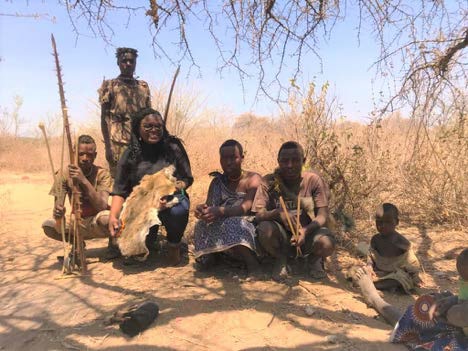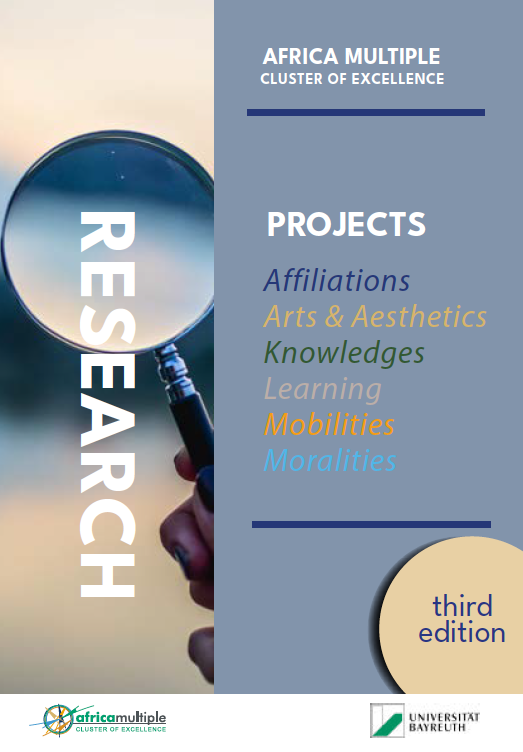Human Rights, Corporate Social Responsibility, and Interacting Markets in Africa
-
Research Section: Affiliations
-
Project duration: July 2019 to June 2023
-
Find an overview of the project (PDF) here.
Summary
This project deals with human rights (HR) focusing on collective human rights and corporate social responsibility (CSR) of
businesses in the context of regional economic communities (RECs) in Africa.
Regarding multinational corporations, there has been a growing attentiveness on the matter of corporate social responsibility. This is shown by the aspiration of several court decisions in the United Kingdom, Canada and the United
States of America in which multinational companies have been legally held accountable for their actions in African host states. Most academic attention has been towards market and trade integration research, whereas areas such as renewable
energy, climate change and environmental issues have relatively been neglected. Albeit, these areas raise important
questions and research opportunities that are dealt with in this project.
Coupled with the fact that human rights of the respective communities (e.g. food and water) might be negatively impacted
by the actions of multinational corporations, collective HR and CSR are crucial not only in the scholarship but also in
the application in practice.
An issue that occurs in African states and the communities is the heterogeneity of different legal systems, which is also referred to as “legal pluralism”. Wherefore, the evolution of collective human rights is being analysed.
Furthermore, religious perspectives are taken into account in regard to human rights and corporate social responsibility,
whereby the focus is on the Muslim community.

From left: project members Dr. Daniel Shayo, Prof. Dr. Ulrike Wanitzek (now retired), Dr. Robert Owino, Prof. Dr. Jörg Gundel, Cecilia Ngaiza, Dr. Franz Kogelmann, Prof. Dr. Bernd Kannowski
Key questions
As aforementioned, human rights, corporate social responsibility and issues such as climate change, energy and environmental difficulties or damages to water resources are closely connected. Therefore, it is crucial to delve into the question to which extent collective human rights have been integrated into national legislation of CSR and into codes of conduct of multinational companies.
Furthermore, with regard to CSR and HR the question arises whether private international law has a role that is advantageous to the respective topic. And if so, to whatextent is private international law and its rules appropriate for enhancing human rights?
Moreover, it is analysed how the adaption of the concept of CSR to the transnational context might be achieved. With regards to CSR, the East African Community’s (EAC) legal and policy landscape is assessed, particularly the implementation of appropriate mechanisms concerning CSR.
Regarding the above-mentioned matter of legal pluralism and the coherent topic on the evolution of collective human
rights, questions arise such as: to what extent are collective human rights typically African? How have African courts and
commissions dealt with collective human rights? And in what ways are collective human rights implemented in individual
African countries?
Further (key) questions are: how can transnational respectively multinational companies be directly obliged to human
rights?
Methods and concepts
The project is following a legal scholarly approach in the classical sense, as well as an empirical law in context approach.
With reference to the religious perspective analysis, a philological in combination with a social sciences approach is adopted.
Regarding human rights and CSR legal and policy mechanisms, an empirical law in context approach is applied. Thus,
a field research is conducted, which includes interviews with companies, government institutions, non-governmental organisations, Law Reform Commissions and national human rights institutions (NHRI).
As far as renewable energy law is concerned, field research including interviews as well as questionnaires are being employed while engaging with regional stakeholders on climate change and renewable energy.

Cecilia Ngaiza (third from the left) a doctorate researcher HR-CSR with members of one of the Hadzabe camps in Mang’ola-Karatu District, Arusha region after a focused group discussion on a topic related to collective rights of the indigenous peoples in Tanzania, on 6 August 2021
Vision
Due to the fact that the development of the project has involved African and German team members, it represents a collaborative undertaking which will be maintained for the duration of the project process and beyond.
The general objective is the reconfiguration of African studies concerning collective human rights and corporate social responsibility, whereby the global point of view of CSR and HR is supposed to be taken into account and put into the African
context.
Contribution or relation to the cluster Agenda
This project contributes to the Cluster’s central concepts i.e. multiplicity, relationality and reflexivity by analyzing the complexity of multi-layered relations and their impacts. Particular attention is paid to overlapping affiliations (e.g. regional or
international affiliations) and its legal frameworks, leading to multi-layered affiliations. Thus, the project will conduce to
the concept of the cluster of “relationality”. By applying a perspective of relationality, distinctions such as “individual” and “collective” human rights are analyzed. As the project’s objective is to put the global viewpoint of CSR and HR into the African context, tenets of Western HR and CSR are meant to be re-evaluated or readjusted.
Additionally, a reflexive perspective comes to play through various individual projects related to Europe and Africa being conducted by project members with the Global North and Global South academic backgrounds. Ultimately, contributions and
exchanges are made within the Cluster setting and Research Section level to thematically associated research sections such as with the project “Multiplicity in Decision-Making of Africa’s Interacting Markets (Mu-DaiMA) in terms of the “Affiliations Forum, the Reflexive African Studies Forum and Doctoral Researchers’ BIGSAS Working Group Regional Integration and the research section “Learning” and “Moralities”.
Project Team

Project Leader and Researcher
Civil Law
University of Bayreuth
E-Mail: bernd.kannowski@uni-bayreuth.de

Prof. Dr. Jörg Gundel
Project Researcher
Public Law, International Law and European Law
University of Bayreuth
E-Mail: joerg.gundel@uni-bayreuth.de

Prof. Dr. Richard Frimpong Oppong
Project Researcher
University of Bradford
Further links / key references
- Find more information on the project here:
Human Rights, Corporate Social Responsibility, and Interacting Markets in Africa
Research Team
- Prof. Dr. Jörg Gundel, Public Law, Public International Law and European Union Law, University of Bayreuth
- Prof. Dr. Bernd Kannowski, Private Law, Human Rights Law and Legal History, University of Bayreuth
- Dr. Franz Kogelmann, Islamic Studies, University of Bayreuth
- Dr. Juliana Masabo, Labour and Migration Law, Human Rights Law, High Court of Tanzania, Dar es Salaam
- Dr. Cecilia Ngaiza, Doctoral Candidate in Law, University of Bayreuth
- N.N., Doctoral Candidate in Law, University of Bayreuth
- Prof. Richard Frimpong Oppong, Private International Law, Regional Economic Integration and International Dispute Settlement with a Special Focus on Africa, Thompson Rivers University, British Columbia, Canada
- Dr. Robert Omondi Owino, Environmental Law, Climate Change Law and Renewable Energy Law, Jomo Kenyatta University of Agriculture and Technology, Nairobi
- Dr. Daniel Shayo, Company Law, Corporate Governance, Corporate Social Responsibility and Competition Law, University of Dar es Salaam
- Prof. Dr. Ulrike Wanitzek, Private Law, Comparative Law and Sociology of Law, Law in Africa, University of Bayreuth
Student Assistants
- Kevin König, Student of Law, University of Bayreuth, Kevin.koenig@uni-bayreuth.de
- Marie Scriba, Student of Law, University of Bayreuth, Marie-Luise.Scriba@uni-bayreuth.de
Summary
Our project will deal with human rights (HR) and responsibility of businesses in the context of African regional economic communities. We aim at reconfiguring African studies regarding the perception of social responsibility of state and non-state actors under circumstances of multiple relations and affiliations.
As to HR, our focus is on collective HR, which can be seen as representing a specifically African dimension of HR and which are, because of their community-based nature, of particular relevance for our RS’s overarching theme (affiliations). As far as responsibility of businesses is concerned, several African countries have recently enacted legislation which mandates corporate social responsibility (CSR) for certain companies or certain sectors. This practice seems to be contrary to the ‘Western’ view of CSR as a voluntary engagement. At the same time, there appears to be a recent revival of interest in attempts to hold multinational corporations legally accountable for wrongs committed in African host states; this has resulted in recent cases decided in the United Kingdom and in Canada.
This intersection of HR and responsibility of businesses raises important questions that will be explored in this project. One of the specific areas in which these questions will be dealt with is environment, renewable energy and climate change in interacting regional markets. These are subjects that have not received significant academic attention in the scholarship on African regional economic communities, which has been dominated by trade and market integration research.
In all these cases, we will analyse especially the impact of the multi-layered relations among and between state and non-state actors influenced by the legal frameworks of over-lapping affiliations, such as cultural, religious, national, regional or international affiliations.
Scheduled Project Duration
1 July 2019 – 31 October 2023


